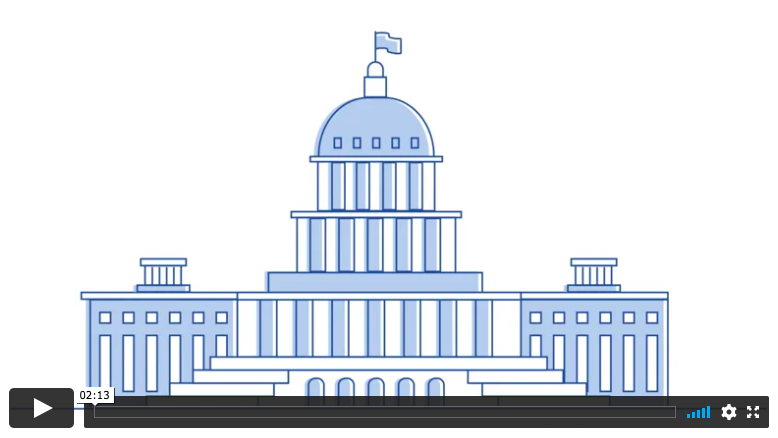“What’s really going on is that we see less than ever before of what others are seeing, so we have less opportunity to understand each other.”
—Jaron Lanier in The Social Dilemma
The Social Dilemma on Netflix helps explain that political polarization is, at least in part, driven by the different feeds we’re all seeing. Algorithms are pulling us apart.
Whatever our disagreements, we all seem to agree that Washington DC is broken. Whether you describe it as gridlock or a swamp, we want our government to do better. To do something.
My daughter decided to do something. She began text banking to help Beto O’Rourke unseat Ted Cruz in the 2018 Texas Senate race. An O’Rourke victory two years ago would have immediate relevance now — after the passing of RBG. It would have tipped the Senate balance and possibly made a material difference in the court’s makeup going forward.
Though her efforts failed to help O’Rourke pull off the upset, they inspired me. I wanted to do something too.
Then I serendipitously stumbled upon the unlikely political activists Katherine Gehl and Michael Porter on a platform I didn’t expect — Debbie Millman’s extraordinary, though not particularly political, Design Matters podcast. As its name suggests, Millman, a significant agency creative director herself, discusses design with mostly industry folks — creative directors, illustrators, graphic designers. It’s rarely politically practical.
Frustrated with Washington’s ineptitude, Millman invited Gehl and Porter to discuss a different type of design.
“We in America do not have government by the majority. We have government by the majority who participate [my emphasis]. Today the challenge for Americans is to participate not only as voters but also to participate in the reform — one might say redesign — of the political system itself. This is our democracy, and the need is urgent.”
—Katherine M. Gehl & Michael E. Porter, “Why Competition in the Politics Industry is Failing America” report
Gehl and Porter are an exciting pair to bring about change. Gehl, a successful businesswoman, sold her eponymous food company to pursue political activism. She recruited Harvard Business School’s Porter, an eminent economics scholar with expertise in business competition, to help her bring about change by identifying why the political game was the root problem.
Porter helped Gehl develop a clear, practical plan to make our politics work better for all of us, regardless of party affiliation.
The Plan, Step 1: Open Primaries
The Gehl/Porter plan begins by explaining why we see what we do in our nation’s capitol:
The system isn’t broken. It’s delivering exactly what we should expect based on its current design.
Party primaries force candidates to cater to the extremes to get on the general election ballot. When these candidates end up in Congress, it’s no wonder they don’t serve the majority. They’re incentivized to espouse extreme views to win the party nominations to participate in upcoming general elections. Many factors work against booting out these extreme candidates, like unbalanced districts and greater partisan voter turnout. Party primaries, though, are a fixable problem.
The majority of voters, regardless of party affiliation, are not extreme. By definition, the majority is not on the fringes. This is why had he won, O’Rourke would likely have faced a candidate further right than Ted Cruz when defending his seat. It often happens when seats flip.
Change begins with open, non-partisan primaries that send the “Final Five” surviving candidates to a general election. Partisan primaries force candidates to take extreme views they might not otherwise espouse to make it to the general election. We’ve seen this in our presidential election, and the same happens locally with partisan primaries in place.
Non-partisan primaries ensure a battle of ideas that must appeal both left and right. Rather than spout dogmatic, partisan rancor to drum up the base, candidates must present their platform of ideas to appeal beyond their bases. Americans want more third party candidates, and this structure also gives independents, typically thought of as spoilers, a fighting chance.
The Plan, Step 2: Rank Choice Voting
Rank Choice Voting is a system in which we vote in rank order for who we want — one for our favorite, two for our second choice, and so on. If one candidate does not achieve a majority vote, then the bottom candidate is eliminated, and the second choices of his/her votes are reassigned to the remaining candidates. If one candidate doesn’t have a majority, another candidate is eliminated. This process continues until one candidate has a majority of the votes.

Open Primaries and Rank Choice Voting will improve the system. Whoever is elected will be incentivized to work for the majority of voters. Eliminating party primaries will incentivize lawmakers to work together — to reach across the aisle and get more done.
Evolution vs. Revolution
I don’t know about you, but I’m not up for a revolution. The appeal of Open Primaries and Rank Choice Voting is that it can be implemented within the system. Rank Choice Voting is already happening in places like Wisconsin, Maine and New York City.
“Whenever someone offers a solution to a problem, critics will be quick to point out that it is not a panacea…this common trope [is] little more than a refusal to entertain the possibility that anything can ever be improved.”
—Steven Pinker, Enlightenment Now
Are Open Primaries and Rank Choice Voting panaceas? Of course not. Nothing is a panacea. It’s a way of improving a system that 100% of us believe needs improvement.
Our constitution provides a framework for how elections should work. The details, though, are worked out at the state and local levels. Therefore, we have the power to change the system. It’s as if our founding fathers foresaw our problems and gave us the tools to ensure our republic evolves.
Let’s listen to them. Let’s improve our system and make it work for us.
John
For more, please check out Gehl Porter and Democracy Found.